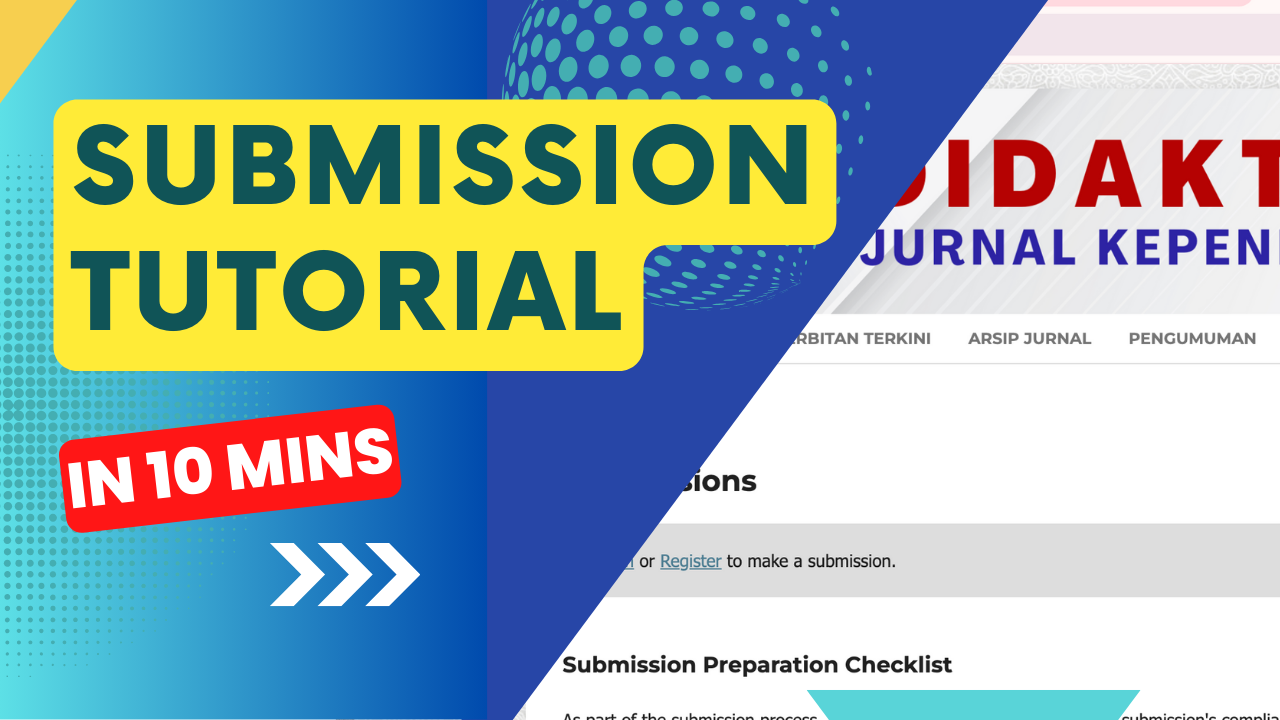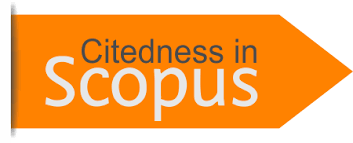Relational Marketing Model of Education Services Service Marketing Triangle (SMT) in Improving Education Services
Abstract
Education as an increasingly competitive sector encourages educational institutions to build positive relationships with students, parents, education staff, and donors. This article aims to describe the Relational Marketing Model of the Service Marketing Triangle (SMT) at SMPIT Madinah Al-Hijrah and analyze its contribution to improving educational services. Within the framework of SMT, this article explores how interactions between schools, frontline employees, and education service customers can impact the educational experience and customer satisfaction. Through qualitative research with interviews and surveys with various stakeholders at SMPIT Madinah Al-Hijrah, this article highlights whether the Relational Marketing Model of SMT Education Services at SMPIT Madinah Al-Hijrah can improve education services. The results showed that this model effectively strengthens communication, service quality, and interpersonal interaction in building strong relationships between educational institutions and educational service customers The application of the concept of friend-raising beyond fundraising has also proven successful in attracting new donors through the support of existing donors. In conclusion, this model not only increases the satisfaction of students, parents, and donors but also strengthens loyalty to educational institutions.
Metrics
References
Ahmad, B., & Akbar. (2023). Validating a multidimensional perspective of relationship marketing on brand attachment, customer loyalty and purchase intentions: a serial mediation model. Journal of Critical Reviews, 31(3), 669–692. https://doi.org/10.1080/0965254X.2021.1969422
Anderson, S., & Smith, J. (2017). An empirical examination of the services triangle. Journal of Services Marketing, 31(2), 236–246. https://doi.org/10.1108/JSM-12-2015-0369
Artanti, Y., Hartini, S., Widyastuti, & Untarini, N. (2020). Improving Relationship Quality: a Relational Model of Internal Marketing and Commitment To Customer Service in Higher Education. Humanities & Social Sciences Reviews, 8(4), 55–68. https://doi.org/10.18510/hssr.2020.847
Auzai, B., Pawito, P., & Purwasito, A. (2019). Communication Building between Islamic Boarding School in Surakarta: A De-radicalization Strategy. International Journal of Multicultural and Multireligious Understanding, 6(3), 1001. https://doi.org/10.18415/ijmmu.v6i3.955
Bastl, M., Johnson, M., & Finne, M. (2019). A mid‐range theory of control and coordination in service triads. Journal of Supply Chain Management, 55(1), 21–47. https://doi.org/10.1111/jscm.12187
Chan-Tien, L., Dan-SHeng, W., & Shun-Fa, H. (2019). The Conceptual Framework for Applying Digital Community Marketing and Marketing Practices into Educational Relationship Marketing Model of Private Technical High School in Taiwan. Proceedings of the 2019 International Conference on Modern Educational Technology, 14–19. https://doi.org/10.1145/3341042.3341050
Cheng, B., Dong, Y., Zhou, X., Guo, G., & Peng, Y. (2020). Does customer incivility undermine employees’ service performance? International Journal of Hospitality Management, 89, 102544. https://doi.org/https://doi.org/10.1016/j.ijhm.2020.102544
Coman, C., Țîru, L. G., Meseșan-Schmitz, L., Stanciu, C., & Bularca, M. C. (2020). Online teaching and learning in higher education during the coronavirus pandemic: Students’ perspective. Sustainability (Switzerland), 12(24), 1–22. https://doi.org/10.3390/su122410367
Czapla, T., Glinkowska-Krauze, B., Chebotarov, V., & Chebotarov, I. (2023). Cross-cultural marketing management: foundations of formation, content, and role in the development of the information economy. Procedia Computer Science, 225, 2845–2855. https://doi.org/https://doi.org/10.1016/j.procs.2023.10.277
Dâmaso, M., & Lima, J. Á. De. (2020). Marketing the School? How Local Context Shapes School Marketing Practices. Journal of School Choice, 14(1), 26–48. https://doi.org/10.1080/15582159.2019.1616993
Đurišić, M., & Bunijevac, M. (2017). Parental Involvement as a Important Factor for Successful Education. Center for Educational Policy Studies Journal, 7(3), 137–153. https://doi.org/10.26529/cepsj.291
Dvorský, J., Petráková, Z., Ajaz Khan, K., Formánek, I., & Mikoláš, Z. (2020). Selected Aspects of Strategic Management in the Service Sector. Journal of Tourism and Services, 11(20 SE-Scientific Papers), 109–123. https://doi.org/10.29036/jots.v11i20.146
Dwivedi, Y. K., Ismagilova, E., Hughes, D. L., Carlson, J., Filieri, R., Jacobson, J., Jain, V., Karjaluoto, H., Kefi, H., Krishen, A. S., Kumar, V., Rahman, M. M., Raman, R., Rauschnabel, P. A., Rowley, J., Salo, J., Tran, G. A., & Wang, Y. (2021). Setting the future of digital and social media marketing research: Perspectives and research propositions. International Journal of Information Management, 59, 102168. https://doi.org/https://doi.org/10.1016/j.ijinfomgt.2020.102168
Espinosa-Vélez, M. P., & Cárdenas-Carrillo, R. (2021). Relational Marketing applied to higher education institutions in the field of Digital Society: approach from a strategic perspective. 2021 16th Iberian Conference on Information Systems and Technologies (CISTI), 1–7. https://doi.org/10.23919/CISTI52073.2021.9476438
Fantauzzi, C., Frondizi, R., Colasanti, N., & Fiorani, G. (2019). Creating Value in the Entrepreneurial University: Marketization and Merchandising Strategies. In Administrative Sciences (Vol. 9, Issue 4). https://doi.org/10.3390/admsci9040082
Grönroos, C. (2017). Relationship marketing and service: An update. Journal of Global Scholars of Marketing Science, 27(3), 201–208. https://doi.org/10.1080/21639159.2017.1318666
Hardy, I., & Grootenboer, P. (2016). Cultivating community: detailing school and community engagement under complex conditions. Teaching Education, 27(1), 21–38. https://doi.org/10.1080/10476210.2015.1034683
Huang, Y.-T. (2020). Internal Marketing and Internal Customer: A Review, Reconceptualization, and Extension. Journal of Relationship Marketing, 19(3), 165–181. https://doi.org/10.1080/15332667.2019.1664873
Kumar, V. (2018). A Theory of Customer Valuation: Concepts, Metrics, Strategy, and Implementation. Journal of Marketing, 82(1), 1–19. https://doi.org/10.1509/jm.17.0208
Kumar, V., Rajan, B., Gupta, S., & Pozza, I. D. (2019). Customer engagement in service. Journal of the Academy of Marketing Science, 47(1), 138–160. https://doi.org/10.1007/s11747-017-0565-2
Mahajan, P., & Golahit, S. (2020). Service marketing mix as input and output of higher and technical education. Journal of Applied Research in Higher Education, 12(2), 151–193. https://doi.org/10.1108/JARHE-01-2019-0022
Menasco, A., Shah, R., Suhy, R., Suhy, M., Lowery, S., Goertz, J., & Hoyt, A. (2023). State and Non-Profit Organizations Collaborate to Provide Food Allergy and Anaphylaxis Education to School Faculty and Staff, Enhancing School Safety Through a Free, Online Course. Journal of Allergy and Clinical Immunology, 151(2), AB103. https://doi.org/10.1016/j.jaci.2022.12.330
Menidjel, C., & Bilgihan, A. (2023). How perceptions of relationship investment influence customer loyalty: the mediating role of perceived value and the moderating role of relationship proneness. Journal of Strategic Marketing, 31(1), 296–319. https://doi.org/10.1080/0965254X.2021.1900342
Mitchell, K., & Ackfeldt, A. (2019). O-8 The donor experience: value creation and the role of the donor in supporter-led fundraising. BMJ Supportive &Amp; Palliative Care, 9(Suppl 4), A3 LP-A3. https://doi.org/10.1136/bmjspcare-2019-HUKNC.8
Mitręga, M., & Choi, T.-M. (2021). How small-and-medium transportation companies handle asymmetric customer relationships under COVID-19 pandemic: A multi-method study. Transportation Research Part E: Logistics and Transportation Review, 148, 102249. https://doi.org/https://doi.org/10.1016/j.tre.2021.102249
Mohammad Kanan, Zerban, A., Abunar, S., Harbi, A. El, Weheba, G., Assaf, R., Abdultawwab, A. M., & Haddad, T. (2023). Online Education and Managing Service Quality with the Challenges of COVID 19: The Case of University of Business and Technology (UBT) Saudi Arabia. Applied Mathematics & Information Sciences, 17(2), 201–207. https://doi.org/10.18576/amis/170201
Neamtu, D. M. (2015). Education, the Economic Development Pillar. Procedia - Social and Behavioral Sciences, 180, 413–420. https://doi.org/https://doi.org/10.1016/j.sbspro.2015.02.138
Nikolova, N., & Andersen, L. (2017). Creating Shared Value Through Service-Learning in Management Education. Journal of Management Education, 41(5), 750–780. https://doi.org/10.1177/1052562917715883
Oana, D. (2019). The Consumer of University Educational Services-A Central Element of Educational Marketing. Studies in Business and Economics, 14(2), 31–40. https://doi.org/10.2478/sbe-2019-0023
Pan, H.-L. W., Nyeu, F.-Y., & Cheng, S.-H. (2017). Leading school for learning: principal practices in Taiwan. Journal of Educational Administration, 55(2), 168–185. https://doi.org/10.1108/JEA-06-2016-0069
Plouffe, C. R., Bolander, W., Cote, J. A., & Hochstein, B. (2016). Does the Customer Matter Most? Exploring Strategic Frontline Employees’ Influence of Customers, the Internal Business Team, and External Business Partners. Journal of Marketing, 80(1), 106–123. https://doi.org/10.1509/jm.14.0192
Poole, S. M. (2017). Developing relationships with school customers: the role of market orientation. International Journal of Educational Management, 31(7), 1054–1068. https://doi.org/10.1108/IJEM-08-2016-0171
Pryadko, I. A., Paytaeva, K. T., Revunov, R. V, Zelenova, G. V, & Evetskaya, S. V. (2019). Promotion of Educational Services in Social Networks BT - Perspectives on the Use of New Information and Communication Technology (ICT) in the Modern Economy (E. G. Popkova & V. N. Ostrovskaya (eds.); pp. 931–942). Springer International Publishing.
Qaisar, F. S., & Muhamad, N. (2021). Internal marketing: a review and future research agenda. Asia Pacific Business Review, 27(2), 267–300. https://doi.org/10.1080/13602381.2021.1858590
Qi, J. (Miracle), Wang, S., & Lindsey Hall, K. K. (2023). Bridging employee engagement and customer engagement in a service context. Journal of Business Research, 160, 113803. https://doi.org/https://doi.org/10.1016/j.jbusres.2023.113803
Reinert, K. A. (2018). Education Services. In K. A. Reinert (Ed.), No Small Hope: Towards the Universal Provision of Basic Goods (p. 0). Oxford University Press. https://doi.org/10.1093/oso/9780190499440.003.0008
Rohim, M. N. (2019). Marketing Strategy for Educational Services BT - Proceedings of the 3rd International Conference on Education Innovation (ICEI 2019). 21–24. https://doi.org/10.2991/icei-19.2019.61
Rutherford, A. (2016). The Effect of Top-management Team Heterogeneity on Performance in Institutions of Higher Education. Public Performance & Management Review, 40(1), 119–144. https://doi.org/10.1080/15309576.2016.1177559
Subramanian, D., & Suquet, J.-B. (2017). Unpacking the Service Triangle: Arranging Power Relations Between Frontline Occupations. Work and Occupations, 45(1), 38–81. https://doi.org/10.1177/0730888417736095
Tee, P. L. K., & Kalidas, C. S. (2016). Positive Impacts of Service Learning on Students’ Personal Outcome and Social Outcome BT - Assessment for Learning Within and Beyond the Classroom (S. F. Tang & L. Logonnathan (eds.); pp. 211–223). Springer Singapore.
Tsarakhova, L. N., & Kabanov, S. V. (2020). Internal Marketing Strategy for Educational Services BT - Proceedings of the International Scientific Conference “Far East Con” (ISCFEC 2020). 1619–1625. https://doi.org/10.2991/aebmr.k.200312.221
Tukiran, M., Tan, P. H. P., & Sunaryo, W. (2021). Obtaining customer satisfaction by managing customer expectation, customer perceived quality and perceived value. Uncertain Supply Chain Management, 9(2), 481–488. https://doi.org/10.5267/j.uscm.2021.1.003
Varbanova, B. (2018). Opportunities to Improve Interaction Between Employees and Educational Institutions. International Conference KNOWLEDGE-BASED ORGANIZATION, 24(2), 432–436. https://doi.org/10.1515/kbo-2018-0128
Vel, P., Shah, A., Mathur, S., & Pereira, V. (2019). Internal marketing in a higher education context – towards an enriched framework. International Journal of Educational Management, 33(1), 5–27. https://doi.org/10.1108/IJEM-02-2018-0043
Weinstein, A., & Johnson, W. C. (2020). Creating Value Through Customer and Supplier Relationships. In In Designing and Delivering Superior Customer Value. https://doi.org/10.4324/9780429277979-10
Wetzel, P., & Hofmann, E. (2020). Toward a Multi-Sided Model of Service Quality for Logistics Service Providers. In Administrative Sciences (Vol. 10, Issue 4). https://doi.org/10.3390/admsci10040079
Yousaf, A., Mishra, A., & Bashir, M. (2020). Brand trust, institutional commitment, and their impact on student loyalty: evidence for higher education in India. Studies in Higher Education, 45(4), 878–891. https://doi.org/10.1080/03075079.2018.1558441
Copyright (c) 2024 Euis Asyiah, Anis Zohriah, Anis Fauzi

This work is licensed under a Creative Commons Attribution 4.0 International License.
Dengan mengirimkan naskah artikel, berarti penulis setuju dengan segala kebijakan yang ditetapkan oleh jurnal dan penerbit.
Penulis menyatakan bahwa:
- kebijakan ini telah diketahui dan disetujui bersama oleh semua penulis;
- naskah artikel belum dipublikasikan secara resmi sebelumnya di media ber-ISSN atau ber-ISBN yang terdaftar, kecuali dalam bentuk abstrak atau sebagai bagian dari materi kuliah, atau skripsi/tesis/disertasi yang tidak diterbitkan;
- naskah tidak sedang dalam proses editorial dan dipertimbangkan untuk publikasi di tempat lain;
- publikasi naskah ini telah disetujui oleh semua penulis, institusi afiliasi penulis, otoritas yang bertanggung jawab, dan lembaga di mana kegiatan telah dilakukan;
- naskah berisi materi yang aman dari pelanggaran hak cipta;
Perjanjian Hak Cipta dan Lisensi
- Penulis memiliki hak cipta dan hak kepemilikan lainnya yang terkait dengan artikel.
- Penulis memiliki hak dan diizinkan untuk menggunakan substansi artikel untuk karya-karya penulis berikutnya, termasuk untuk keperluan bahan/materi kuliah dan buku.
- Penulis menyerahkan hak publikasi pertama kepada jurnal dengan di bawah Lisensi Creative Commons (CC BY 4.0).
Pernyataan Lisensi CC BY 4.0
Anda diperbolehkan:
- Berbagi — menyalin dan menyebarluaskan kembali materi ini dalam bentuk atau format apapun;
- Adaptasi — menggubah, mengubah, dan membuat turunan dari materi ini untuk kepentingan apapun, termasuk kepentingan komersial.
Pemberi lisensi tidak dapat mencabut ketentuan di atas sepanjang Anda mematuhi ketentuan lisensi berikut ini.
- Atribusi — Anda harus mencantumkan nama yang sesuai, mencantumkan tautan terhadap lisensi, dan menyatakan bahwa telah ada perubahan yang dilakukan. Anda dapat melakukan hal ini dengan cara yang sesuai, namun tidak mengisyaratkan bahwa pemberi lisensi mendukung Anda atau penggunaan Anda.
- Tidak ada pembatasan tambahan — Anda tidak dapat menggunakan ketentuan hukum atau sarana kontrol teknologi yang secara hukum membatasi orang lain untuk melakukan hal-hal yang diizinkan lisensi ini.





.png)








